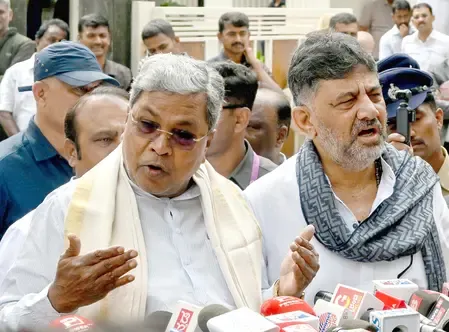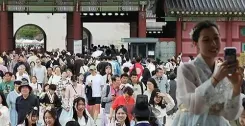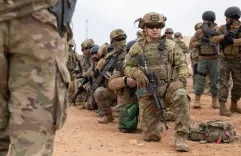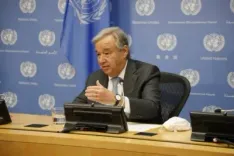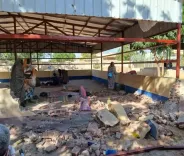Why Did the Lok Sabha Adjourn Amidst Opposition Protests Over Bihar's SIR?
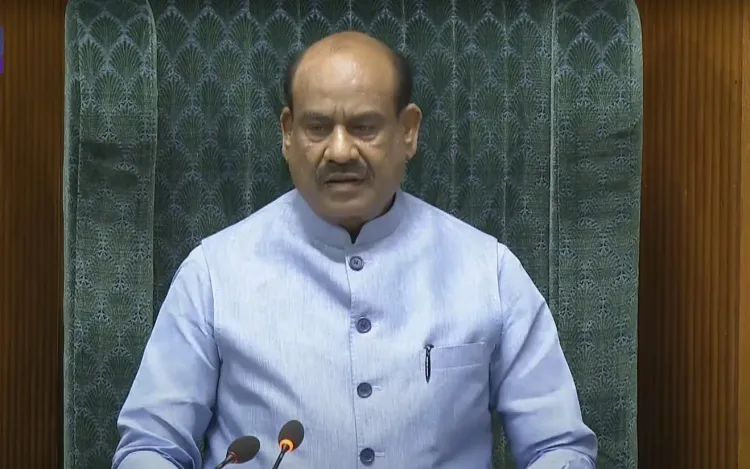
Synopsis
Key Takeaways
- Lok Sabha faced disruptions over electoral roll revisions.
- Opposition protests highlight concerns of voter disenfranchisement.
- Political tensions are escalating ahead of Bihar Assembly polls.
- Speaker Om Birla called for order, but chaos ensued.
- The Election Commission insists the SIR process is impartial.
New Delhi, July 24 (NationPress) Just six minutes into Thursday's session, the Lok Sabha descended into chaos and was swiftly adjourned, as opposition members (MPs) shouted slogans and initiated a boisterous protest against the controversial Special Intensive Revision (SIR) of electoral rolls in Bihar.
This disruption underscores the rising political tensions surrounding allegations of voter disenfranchisement ahead of the state's upcoming Assembly elections scheduled for later this year.
Despite repeated calls for order from Speaker Om Birla, the protests continued unabated among the Opposition, leading to an early adjournment until 2 p.m. This marks the fourth consecutive day of turmoil during Parliament's Monsoon Session, with opposition parties amplifying their calls for a discussion on the Bihar voter verification initiative, the Pahalgam terror attack, and Operation Sindoor.
Earlier, Congress leaders Sonia Gandhi and Priyanka Gandhi Vadra joined the demonstration at Makar Dwar, with Priyanka holding a placard stating “Democracy in Danger”.
The Election Commission's SIR initiative has generated controversy after it was revealed that over 52 lakh voter names could be removed due to duplication, deaths, or relocation.
Opposition leaders argue that this exercise disproportionately impacts marginalized communities and migrants, accusing the government of engaging in “institutional voter cleansing”.
Congress MP and party whip in the Lower House, Manickam Tagore, submitted an adjournment motion under Rule 56, labeling the ECI’s actions as “unconstitutional” and a direct attack on voting rights.
Outside the House, Sanjay Singh, a Rajya Sabha member from AAP (Aam Admi Party), echoed these sentiments, claiming that “Bihari and Purvanchali” residents in Delhi are experiencing harassment and disenfranchisement.
On Wednesday, both Houses faced multiple adjournments before being suspended for the day.
The Lok Sabha and Rajya Sabha are set to conduct a 16-hour debate on “Operation Sindoor” on July 28 and 29, respectively. However, opposition parties insist that Prime Minister Narendra Modi must personally address Parliament on these pressing issues.
Speaker Birla, clearly frustrated, cautioned MPs against bringing placards into the House and urged them to maintain parliamentary dignity.
“This House is for discussion, not sloganeering,” he stated.
With rising tensions and legislative activities stalled, the Monsoon Session risks being eclipsed by procedural deadlock.
The likelihood of the planned debates proceeding remains uncertain as opposition parties pledge to continue their protests until their demands are met.
The Election Commission of India’s ongoing Special Intensive Revision (SIR) of electoral rolls has sparked a fierce political standoff in Bihar. The opposition coalition, INDIA bloc, has accused the revision process of being biased in favor of the ruling NDA government—an allegation the EC has strongly denied, asserting that the process is both routine and impartial.
As political tempers flare, the SIR initiative has emerged as a pivotal issue in the pre-election landscape of Bihar.




